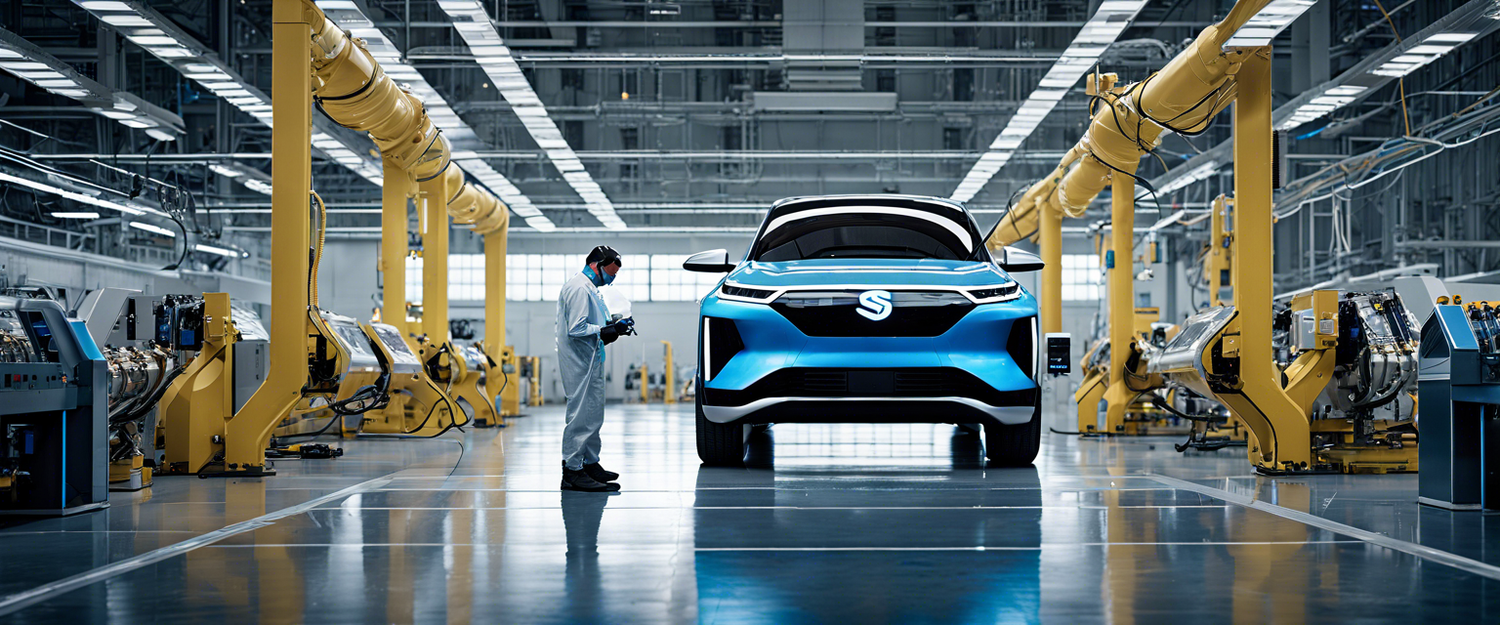Department of Energy's New Loan for EV Battery Plants
The U.S. Department of Energy (DOE) has taken a significant step toward promoting electric vehicle (EV) manufacturing by preliminarily approving a loan aimed at funding the construction of battery factories. The latest initiative, a collaboration between Stellantis and Samsung SDI, has been awarded a substantial $7.54 billion loan to establish two EV battery plants in Kokomo, Indiana.
Job Creation and Economic Impact
This ambitious project is set to generate approximately 3,200 new jobs along with an additional 2,800 operations jobs at the factories. Moreover, the nearby supplier park will offer hundreds of further employment opportunities, significantly boosting the local economy.
Loan Details and Conditions
The conditional loan commitment consists of $6.85 billion in principal along with $688 million in capitalized interest. This funding will be directed to StarPlus Energy LLC, a joint venture between Stellantis and Samsung SDI, highlighting the importance of public-private partnerships in advancing EV technology.
The Advanced Technology Vehicles Manufacturing Program
The loan is part of the DOE's Advanced Technology Vehicles Manufacturing (ATVM) program, which has been revitalized under President Biden. Initiated in 2022, this program aims to support the burgeoning EV manufacturing sector within the United States.
Competition and Political Considerations
However, the future of this funding initiative hangs in the balance. The loan, much like a previous $6.6 billion loan approved for Rivian, is under a time constraint to secure final approval before the next presidential term. Former President Donald Trump has indicated a desire to dismantle many of Biden's EV-directed financial initiatives should he return to office. This includes plans to eradicate the $7,500 tax credit for new EV purchases and potentially dismantle the ATVM loan program, which, despite being initiated before the Inflation Reduction Act (IRA), could still face elimination.
Historical Context of the ATVM Program
The ATVM loan program has played a pivotal role in the success of American EV startups. Its most notable loan of $465 million to Tesla in 2009 is often cited as a crucial factor in the company's survival during its early years. However, the program stalled during Trump's first administration, leaving many EV startups without necessary financial backing.
Recent Commitments Under the Program
Since its reactivation, the DOE has made several notable commitments under the ATVM program, including:
- $2.5 billion loan to General Motors and LG Energy Solution for lithium-ion battery manufacturing.
- $9.2 billion loan to Ford and SK Innovation.
- $2 billion loan to Redwood Materials.
The Stellantis-Samsung plants' proposed capacity will be approximately 67 GWh of battery production, sufficient to power around 670,000 vehicles annually.
Challenges Facing Stellantis
Despite the promising prospects, Stellantis is currently undergoing internal challenges that may affect its ability to execute the program's requirements. Recently, CEO Carlos Tavares announced his departure amid declining sales both in the U.S. and worldwide. Additionally, the company must enhance its competitiveness in the electric-vehicle landscape, which is rapidly evolving with advancements in technology and software-defined vehicles.
Conclusion
The approval of the $7.54 billion loan to Stellantis and Samsung SDI marks a pivotal moment for the U.S. EV manufacturing industry. As the nation gears up to transition to electric vehicles, successful execution of these projects and the political climate surrounding them will significantly shape the future of EV production and the broader economy.



コメントを書く
全てのコメントは、掲載前にモデレートされます
このサイトはhCaptchaによって保護されており、hCaptchaプライバシーポリシーおよび利用規約が適用されます。